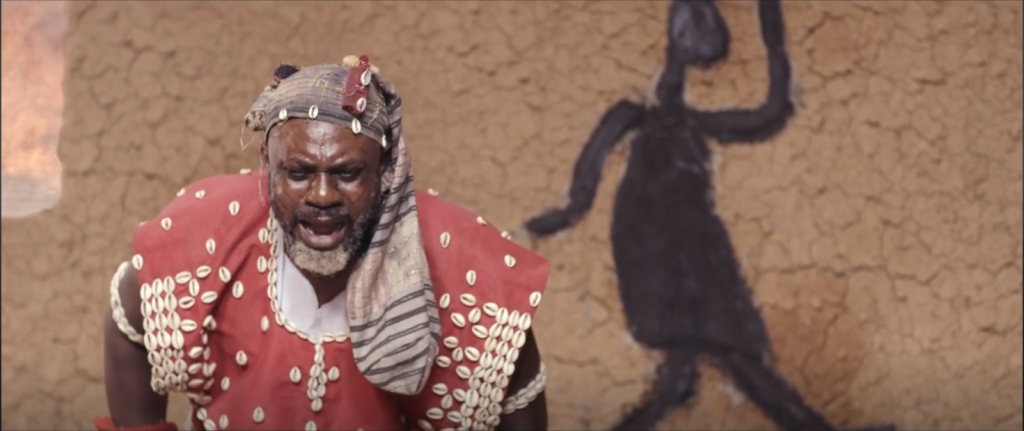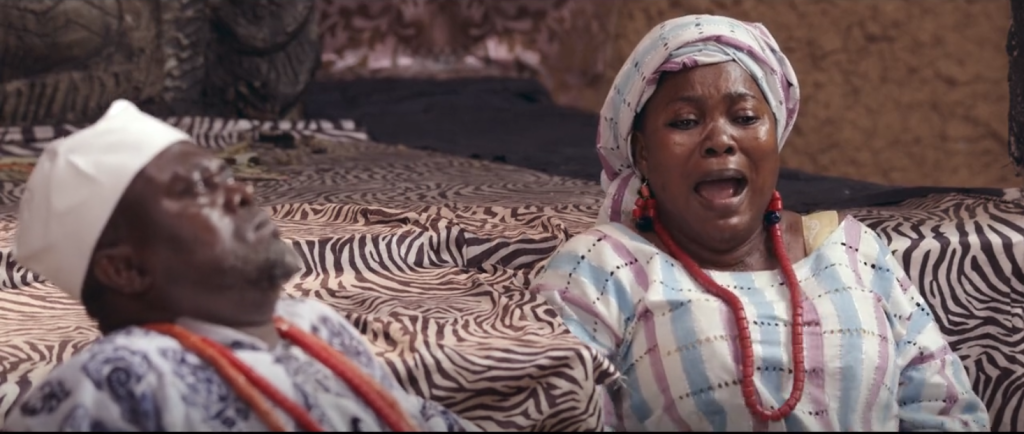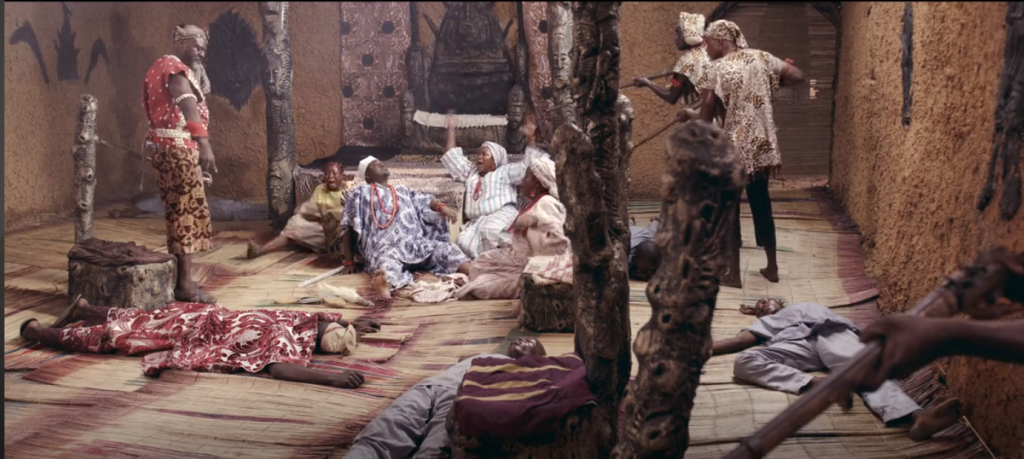Every once in a while, a movie comes out from Nollywood that sets the tone for the year, instilling pride in Nigerians and reviving hope that our cinema is going somewhere. Sometimes, we find these movies in the cinema, and then they make their way to Netflix.
Remember how we felt about Kunle Afolayan’s October 1st? Then there was Living In Bondage and Anikulapo. Not that these movies are extremely awesome, but they did something for the community. They added a new slice of filmmaking techniques that were not in the films before. Perhaps this is what Femi Adebayo set out to do when he decided to produce, direct and star in his own movie. What I can tell you for sure is that Jagun Jagun is not by any means the movie it thinks it is.
One of the improvements from old Nollywood is that the cinematography has changed. We use better equipment and better sound. We also pay a little more attention to colour. But the improvement only stops here.
We continue to butcher stories, employ actors who do not know how to act and ignore the other salient aspects of filmmaking. The problem with the state of filmmaking in Nigeria is very evident when you look at Jagun Jagun critically for a second.

When you drill down to the basics, Jagun Jagun came from a good story. It feels like folklore passed from mouth to mouth. We have a character that has a mission, and he goes on a journey to get what he wants. Warriors raided Gbotija’s village, and he swore to get stronger to avenge the death of his father and kinsmen. No matter how choppy the film was, we can say that this journey was finished. The dialogue in the film is delivered in traditional Yoruba style, albeit with many questionable proverbs, but I give props for incorporating Yoruba theatre into life.
Another bright spot is Bimbo Ademoye. She always delivers. Her immense natural talent is only bounded by the director she has to work under. Sadly, she takes a minor role in this film, taking up only a few scenes as Gbogunmi’s wife.
But where does it all go wrong in Jagun Jagun?

Scriptwriting 101
Where does a plot come from? From its characters. Of course, Nollywood is not known for its deep characterizations or for going beyond source material to dig up anything underneath the actions of characters. While the lack of fleshing out of character makes for an unseasoned plot, it can still make a complete plot, nevertheless.
However, the plot of Jagun Jagun is a 134-minute fest that loses focus consistently. One starts out thinking that Gbotija is the protagonist on a strong mission of revenge, but his intentions don’t drive the plot forward. It is the antagonist, Ogundiji, who does.
We progress through the story, not by Gbotija’s actions but by his reactions to the only person who doesn’t lack focus in the story, Ogundiji. We pick up on threads halfway and subplots that fail to link to the main story. It is only at the end, after Kitan dies, that Gbotija takes his first decision (which is basically still a reaction to the death of Kitan) in the film and fights Ogundiji. This positions him as a weak character and immediately robs us of whatever payoff we deserve at the climax.
Ancient Nigeria is not that ugly. I will say this again for those at the back.
Ancient Nigeria is not that ugly. Everything on set seemed dirty and out of design. There was no class in the decorations of the house, and precolonial houses were definitely designed better than what we saw in this film.
Jagun Jagun is obviously one of those films written to showcase African culture to people in the West who are looking to see what Africa was like. But it failed in this regard. For a region in West Africa that has some of its finest art sitting in museums and in storage all over the world as collectors’ items, jewels stolen from shrines, paintings depicting royalty and beauty, and sculptures showing strength and grace, we expected more from this film than what we got.

The actors in this film seemed to have only two modes: shouting or mumbling. They delivered their lines in the same monotonous tone that is common in many Yoruba movies. They lacked expression, emotion, and charisma. They did not make us care about their characters or their fates. We are always happy to see Yoruba theatre live on in the movies, but our palates have evolved beyond mere dramatism for the sake of dramatism.
Computer Generated Imagery can be a useful tool for creating realistic and immersive scenes, but only if done well. In this film, the CGI was so poor that it distracted from the story and broke the suspension of disbelief. The editing was also sloppy and inconsistent. The colours did not match the moods and tones of the scenes. The transitions were abrupt and confusing. There was no attention paid to the opening and closing out of a scene. The film could have benefited from more careful and creative editing ( for example, scenes where Gbotija’s coffin was sinking in the water or where he fought Ogundiji). And did we have to fill all the available runtime with music?
Proponents of this film might argue that Jagun Jagun did what it was supposed to do and sent the appropriate message it was supposed to send.
But at what cost?
If you look at the team behind this movie, you will find Femi Adebayo’s name all over the credits. He is a politician, an actor, a producer, and a director, but not a filmmaker. He seems to have taken on too many roles without mastering any of them. Perhaps that is why Jagun Jagun failed as a film, even though it might have succeeded as a video project. At some point, the lackluster performances dipped so low in quality that it seemed like the actors only showed up on set because they had signed contracts and wanted to get their paychecks.
In any case, what remains is that Jagun Jagun is a movie made by people who do not take filmmaking seriously but want to cash a Netflix check. Which, at this stage, is okay. We need to put more content in front of everyone. And at least we are not where we used to be ten years ago.
But for an industry as old as Nollywood, Jagun Jagun should be one of our worst films.





2 Comments
I love love this breakdown. Watched it and it was nice. As a normal viewer, I didn’t notice all these but this review looks like it’s from a professional standpoint. Thank you for breaking this down!
Thank you, thank you.